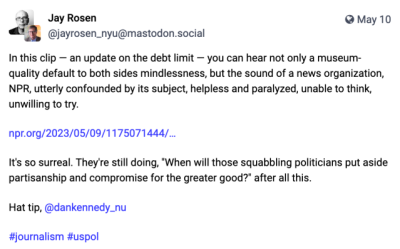
The case for disqualifying Donald Trump from running for president is almost certainly headed for the U.S. Supreme Court, and that’s exactly where it belongs. The court needs to make a determination as to whether Trump “engaged in insurrection” on Jan. 6, 2021. He did. We watched him do it. But without an official ruling of some sort, it would be illegitimate to throw him off the ballot.
A 4-3 ruling by the Colorado Supreme Court doesn’t get the job done. Neither does an opinion issued by Maine Secretary of State Shenna Bellows. Nevertheless, they both did the country a service, because they’ve started the wheels turning to resolve this issue once and for all — or at least for the 2024 election. Let’s look at what Section 3 of the 14th Amendment says:
No person shall be a Senator or Representative in Congress, or elector of President and Vice President, or hold any office, civil or military, under the United States, or under any state, who, having previously taken an oath, as a member of Congress, or as an officer of the United States, or as a member of any state legislature, or as an executive or judicial officer of any state, to support the Constitution of the United States, shall have engaged in insurrection or rebellion against the same, or given aid or comfort to the enemies thereof. But Congress may by a vote of two-thirds of each House, remove such disability.
Now, the Supremes may cop out by claiming that candidates for president aren’t specifically covered by Section 3, or that it was intended solely to prevent Confederate officials from seeking political positions. That would be a travesty. Because what we really need to know is whether SCOTUS believes that Trump “engaged in insurrection” by whipping up a mob of supporters in an attempt to prevent Congress from certifying Joe Biden’s victory. Again, we know he did it. But that’s not the same as a congressional determination, which we don’t have, or a Supreme Court ruling, which we almost certainly will. What does it mean, legally and constitutionally, to attempt an insurrection against the government?
I’m not saying that I trust the court; quite the contrary. But we only have one Supreme Court, and thus it’s important that the justices weigh in. Much of the debate over the 14th Amendment has been profoundly unserious. Voters should have the right to decide? Not if a candidate is ineligible. That’s why someone younger than 35 or who’s born in another country can’t run. Throwing Trump off the ballot would risk violence and rebellion? Then why have a Constitution in the first place? We are a country of laws, or at least that’s the idea.
The decision needs to be made by an institution that we would all recognize as having the last word, whether we agree or not. The Supreme Court is that institution. I wish we had a better court, but that’s an issue for another day.





 Two must-see features following Wednesday’s decision by a federal judge to
Two must-see features following Wednesday’s decision by a federal judge to